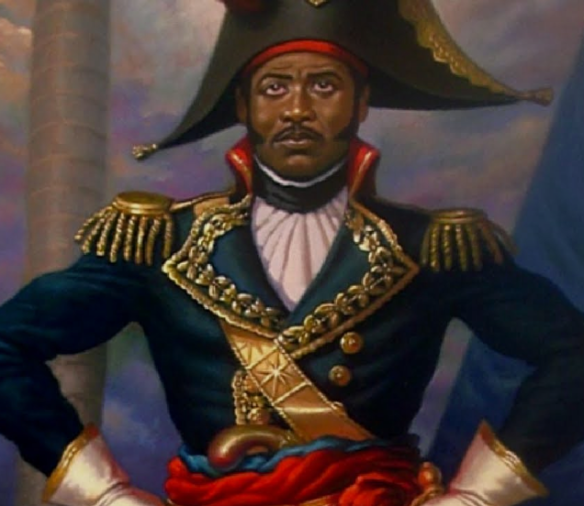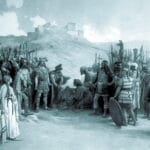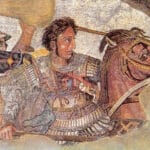Dive into the captivating mystery surrounding the assassination of Haitian President Jovenel Moïse. Uncover the key facts that shocked the world as we explore the intricate web of conspiracy, corruption, and the ongoing pursuit of justice. Join us as we unravel the enigma surrounding this tragic event and its profound impact on Haiti’s destiny.
20 Facts About Jovenel Moïse’s Assassination
The assassination of Haitian President Jovenel Moïse on July 7, 2021, sent shockwaves across the globe. The circumstances surrounding his death remain shrouded in mystery, raising numerous questions that linger even today. Here’s what we know so far:
- The Attack: In the dead of night, a group of heavily armed individuals stormed Moïse’s private residence, catching everyone off guard.
- Mercenaries Involved: Authorities apprehended 28 foreign mercenaries, primarily from Colombia, suggesting a well-organized plot.
- DEA Impersonation: Chillingly, the assassins disguised themselves as agents from the U.S. Drug Enforcement Administration (DEA), indicating a deliberate attempt at deception and infiltration.
- Martine Moïse’s Survival: While President Moïse tragically lost his life, his wife, Martine Moïse, sustained injuries but survived the attack.
- Spared Security: Puzzlingly, the assassins reportedly chose not to harm Moïse’s security detail, fueling theories about possible insider involvement.
- Obstacles to Justice: The investigation into Moïse’s murder has faced significant challenges due to political instability in Haiti and a lack of resources.
- International Conspiracy Theories: The involvement of foreign mercenaries has led many to suspect the involvement of powerful figures outside of Haiti in orchestrating the assassination.
- Conflicting Motives: Those arrested have given conflicting accounts of why Moïse was killed, with some claiming they were hired only to detain him, not to take his life.
- State of Siege: In the wake of the assassination, Haiti descended into chaos, prompting then-Interim Prime Minister Claude Joseph to declare a state of siege in an attempt to restore order.
- Rise of Ariel Henry: Following Moïse’s death, Ariel Henry assumed the role of Prime Minister, but his leadership has been met with controversy and unrest.
- Outrage and Demands for Justice: The assassination ignited widespread anger and grief among the Haitian people, who took to the streets demanding justice for their fallen leader.
- Exposed Instability: The assassination laid bare the deep-seated political instability that has plagued Haiti for decades, serving as a stark reminder of the challenges the nation faces.
- International Pressure: The international community, horrified by the assassination, called for a thorough and transparent investigation into Moïse’s death, urging Haiti to bring the perpetrators to justice.
- Media’s Shaping of Narrative: As with any major event, the media has played a significant role in shaping the narrative surrounding Moïse’s assassination, influencing public perception.
- Uncertain Future: The long-term consequences of this event on Haiti’s political landscape remain unclear, but the nation faces an uphill battle toward stability and progress.
- Economic Fallout: Moïse’s assassination also cast a shadow over Haiti’s already fragile economy. The instability and uncertainty discouraged investment and worsened the nation’s economic woes.
- Justice Delayed?: The slow pace of the investigation has frustrated many who believe justice is being delayed, and the lack of concrete answers continues to fuel speculation and mistrust.
- Legacy of Violence: The assassination is a tragic reminder of the political violence that has marred Haiti’s history and underscores the urgent need for peaceful solutions and reconciliation.
- A Nation in Mourning: Even today, Haiti continues to grieve the loss of its president. The event has left a deep scar on the national psyche, a stark reminder of the fragility of peace.
- Unanswered Questions: Two years on, the assassination of Jovenel Moïse remains a puzzle with many missing pieces. Unanswered questions linger, leaving a sense of unease and a thirst for the truth.
Why Was President Jovenel Moïse Assassinated?
The assassination of President Jovenel Moïse on July 7, 2021, sent shockwaves through Haiti and the world. A group of armed men stormed his private residence in the middle of the night, fatally shooting him and injuring his wife. However, the motive behind this brazen attack remains a tangled web that investigators are still trying to unravel.
Several theories and possible explanations have emerged, suggesting a complex interplay of factors could have contributed to the assassination:
1. Crackdown on Corruption and Drug Trafficking:
Some experts believe Moïse’s efforts to combat corruption and drug trafficking may have made him powerful enemies. Haiti has long grappled with these issues, and Moïse had reportedly begun gathering evidence against key figures involved in these illicit activities. There are reports that he had compiled a list of powerful Haitian individuals allegedly involved in drug trafficking, which, if it exists, could expose those who saw him as a threat.
US officials have also suggested that Moïse’s stance against drug and arms smuggling might have made him a target, especially if these networks had infiltrated high levels of power in Haiti.
2. Political Motivations and Power Struggles:
Given Haiti’s history of political instability and violence, political motivations cannot be ruled out. Moïse’s presidency was marked by controversy and opposition. Some suggest that individuals or groups who opposed his policies or sought to seize power may have been involved in the assassination.
3. Foreign Interference and Mercenaries:
The involvement of foreign mercenaries, primarily from Colombia, raises further questions about external influences. The reasons behind their presence in Haiti, who hired them, and their exact role in the assassination remain unclear. This has fueled speculation about the possible involvement of foreign governments or organizations with interests in Haiti.
Challenges Facing the Investigation:
Despite these leads and theories, the investigation has faced numerous obstacles. Haiti’s fragile justice system, political instability, and lack of resources have hampered efforts to conduct a thorough and impartial investigation. The case has seen numerous judges and investigators come and go, hindered by fear, political interference, and a lack of resources.
The assassination of President Moïse stands as a stark reminder of the deep-rooted challenges facing Haiti. It is a tragic event that has left a void in the country’s leadership and raised serious concerns about the rule of law and the pursuit of justice.
While some pieces of the puzzle appear to be falling into place, many questions remain unanswered. It is crucial that the investigation continues, unhindered by pressure or influence, to uncover the truth behind Moïse’s assassination and hold those responsible accountable. The future of Haiti’s fragile democracy may very well depend on it.
How Many Haitian Presidents Have Been Assassinated?
Haiti has a tumultuous political history marked by instability and violence. This violence has, unfortunately, reached the highest office in the country, resulting in the assassinations of four Haitian presidents while in office:
- Jean-Jacques Dessalines (1806): Remembered as the father of Haitian independence, Dessalines was assassinated just a couple of years after Haiti declared its freedom from France. This early assassination highlights the challenges of establishing stability in a newly independent nation.
- Sylvain Salnave (1870): Salnave met a grim end after fleeing Haiti for the neighboring Dominican Republic. He was captured and executed, illustrating the intense rivalries and conflicts within Haitian politics.
- Michel Cincinnatus Leconte (1912): Leconte’s death in a sudden explosion at the National Palace remains shrouded in mystery. While some believe it was accidental, others suspect foul play, making it a point of debate among historians.
- Jean Vilbrun Guillaume Sam (1915): Sam’s assassination occurred during a particularly chaotic period. The U.S. had just invaded Haiti, and tensions were incredibly high. His death further fueled the turmoil and resentment towards foreign influence in Haitian affairs.
These assassinations serve as stark reminders of the difficulties Haiti has faced in its pursuit of a stable and democratic government. They expose how deep-seated power struggles and economic inequalities can erupt into violence, leaving a lasting impact on the nation.
Things to Keep in Mind:
- Four presidents in Haitian history have been assassinated: Dessalines, Salnave, Leconte, and Sam.
- Many of these assassinations were rooted in power grabs and economic conflicts, highlighting how these issues can destabilize a nation.
- This history of violence has undoubtedly made it tougher for Haiti to build a strong democracy.
How Many Presidents Have Been Shot But Survived?
While the assassination of a president is a tragic and impactful event, it is important to acknowledge that not all attempts on a president’s life have been successful. Throughout history, several U.S. presidents have faced assassination attempts but survived their ordeals. Two notable examples include:
1. Theodore Roosevelt (1912): Known for his robust personality and adventurous spirit, Theodore Roosevelt brushed off an assassination attempt while campaigning for president. Despite being shot in the chest, he famously continued his speech, declaring, “It takes more than that to kill a Bull Moose!”
2. Ronald Reagan (1981): In a harrowing incident, Ronald Reagan was shot outside a Washington D.C. hotel. The nation held its breath as the president underwent surgery, but Reagan ultimately recovered, showcasing resilience and inspiring the country with his optimism.
These events, though unsuccessful in their ultimate goal, serve as powerful reminders that even in the face of danger and uncertainty, courage, resilience, and a degree of luck can prevail.
Who Is the Widow of the Haitian President?
Martine Moïse, the widow of assassinated Haitian President Jovenel Moïse, has found herself at the center of controversy and legal troubles following her husband’s death.
Accusations and Charges:
Martine Moïse has been formally accused of being involved in the plot to assassinate her husband. Haitian authorities have charged her with complicity and criminal association, alleging that she played a role beyond simply being the president’s wife.
Some of the accusations against her include:
- Removing undisclosed items from the presidential palace before the assassination.
- Conspiring to remove her husband from power.
Martine Moïse’s Defense:
Martine Moïse vehemently denies these accusations, maintaining her innocence and claiming that she is being used as a scapegoat by those in power. She asserts that she loved her husband and would never be a part of such a horrific act.
The Ongoing Investigation:
The truth behind the assassination and Martine Moïse’s alleged involvement remains shrouded in mystery. The investigation is ongoing, and each new piece of evidence adds another layer of complexity to this tragic and convoluted story.
What Has Happened to Haiti’s President?
On July 7, 2021, Haiti was shaken by the assassination of President Jovenel Moïse. A group of armed men, including Colombian mercenaries, stormed his private residence in the middle of the night, fatally shooting him and injuring his wife. This shocking event exacerbated the already significant challenges facing the country, including widespread violence, a struggling economy, and political instability.
The Investigation and Key Suspects:
The investigation into Moïse’s assassination has been complex and fraught with challenges. Haitian police have arrested dozens of suspects, including:
- Colombian Mercenaries: A significant number of those arrested were part of a group of Colombian mercenaries who allegedly carried out the attack.
- Haitian Americans: Three Haitian Americans have also been implicated
- Dr. Christian Emmanuel Sanon: A Haitian American doctor, Sanon is considered a key suspect. Some believe he may have hired the mercenaries, aspiring to become president himself.
Despite these arrests, the motive behind the assassination remains unclear. Theories range from political motivations and power grabs to connections with criminal networks.
The Impact on Haiti:
The assassination has had a devastating impact on Haiti. The country was already grappling with significant challenges, and the assassination has only deepened the political instability and fueled further unrest.
The assassination of Jovenel Moïse is a stark reminder of the deep-seated problems facing Haiti. It has left a void in leadership and raised serious concerns about the country’s ability to achieve stability and progress. As the investigation continues, the world watches and hopes for a resolution that brings justice for Moïse and provides a path forward for a nation in crisis.
Which Country Has the Most Assassinated Leaders?
Determining the country with the most assassinated leaders is a complex task due to variations in historical context and political systems. However, ancient Rome stands out with a grim distinction.
- Ancient Rome: It is estimated that at least 32 Roman emperors were assassinated or suspected of being assassinated during the Roman Empire’s long history. This high number underscores the volatile and often treacherous nature of politics in ancient Rome.
While ancient Rome may hold the grim record, assassinations of leaders have been a recurring tragedy throughout history and continue to plague the modern world.
Some Sobering Statistics:
- Since 1950, assassinations of world leaders have occurred at an average rate of almost two per year.
- More than 74% of fatal attacks on political figures since 1950 have been carried out using guns.
These figures highlight the ongoing dangers faced by political leaders and the persistent use of violence as a means of achieving political goals.
Why Do Assassinations Happen?
Assassinations are complex events rarely driven by a single, straightforward motive. Instead, they often result from a confluence of factors, creating a perfect storm that leads to violence:
- Political Instability: Countries experiencing significant political instability are particularly vulnerable to assassinations. Power struggles between different factions or individuals can create a climate where violence is seen as an acceptable means to eliminate rivals or achieve political objectives.
- Revenge and Personal Vendettas: While seemingly at odds with the political sphere, personal grudges and vendettas can play a role in assassinations. Deep-seated resentment, desires for revenge, or a perceived need to right past wrongs can drive individuals to extreme measures.
- Economic Interests: Greed and economic interests can also be powerful motivators for assassination. Individuals or groups who stand to gain financially from a leader’s removal may resort to violence to achieve their aims.
The Ripple Effect: Assassinations Don’t Happen in a Vacuum
The assassination of a leader, even one who was unpopular or considered corrupt, rarely solves a country’s problems. Instead, it often creates a ripple effect, leading to further instability and new challenges:
- Power Vacuum: The sudden removal of a leader creates a power vacuum that can lead to a dangerous scramble for control. Different factions or individuals may vie for power, potentially leading to further violence and instability.
- Erosion of Trust: Assassinations can deeply damage public trust in government institutions and processes. The loss of a leader through violence can lead to feelings of fear, anger, and betrayal among the population, making it challenging to rebuild trust and move forward.
- Historical Significance: Assassinations leave a permanent mark on history, shaping how we view leadership, power, and political behavior. They serve as reminders of the human capacity for violence and the fragility of peace.
Who Was the Wife of the Assassinated Haitian President Indicted in His Killing?
Martine Moïse, the wife of assassinated Haitian President Jovenel Moïse, was indicted in connection with her husband’s murder. She faces charges of “complicity and criminal association,” which suggests that Haitian authorities believe she played a role in the plot to kill her husband.
Key Accusations:
- Conspiracy to Remove Moïse from Power: Allegations suggest that Martine Moïse was part of a group planning to oust her husband from the presidency.
- Suspicious Activities Before the Assassination: Reports indicate that Martine Moïse was seen removing items from the presidential palace shortly before the assassination, raising suspicions about her activities and intentions.
Martine Moïse’s Response:
Martine Moïse has vehemently denied any involvement in her husband’s murder, maintaining her innocence and claiming that she is being unjustly targeted.
The Ongoing Investigation:
Martine Moïse’s indictment is just one piece of a much larger puzzle that investigators are still piecing together. The investigation is ongoing, and many questions remain unanswered.
Did Haiti’s Prime Minister Survive Assassination?
Following the assassination of President Jovenel Moïse, Haiti’s then-Prime Minister, Claude Joseph, took control of the government. While Joseph was not targeted in the attack that killed Moïse, his leadership in the aftermath of the assassination quickly became a point of contention.
Accusations of Involvement:
As the investigation into Moïse’s assassination progressed, rumors and accusations began circulating, suggesting that Claude Joseph may have been involved in the plot. These accusations further complicated an already chaotic and unstable situation.
Cleared of Wrongdoing:
The judge overseeing the assassination case ultimately cleared Claude Joseph of any involvement in the plot. Although he was cleared, the accusations against him highlight the deep mistrust and suspicion that plagued Haitian politics following the assassination.
The Motive Remains Unclear:
Even though Claude Joseph was cleared, the motive behind President Moïse’s assassination remains a subject of speculation and debate. Various theories, ranging from political rivalries to links with organized crime, continue to circulate as investigators work to uncover the truth.
What Are Haiti’s Concerns After the Presidential Assassination?
The assassination of President Jovenel Moïse has significantly heightened existing concerns and created new challenges for Haiti, a nation already grappling with a multitude of crises.
1. Political Instability and Uncertainty:
The assassination has exacerbated Haiti’s longstanding problem of political instability. The power vacuum created by Moïse’s death has led to uncertainty and a struggle for control, making it even more difficult to address the country’s pressing issues.
2. Security Concerns and Violence:
Haiti’s security situation, already fragile before the assassination, has deteriorated further. The lack of security has contributed to a surge in gang violence, kidnappings, and a general sense of lawlessness, making it increasingly dangerous for ordinary citizens.
3. Corruption and Impunity:
Corruption has long plagued Haitian society and institutions. The assassination has put a spotlight on this deep-rooted problem, raising concerns that those responsible for the president’s death may never be held accountable due to corruption and a lack of transparency.
4. Humanitarian Crisis:
Haiti was already facing a dire humanitarian crisis before the assassination, with widespread poverty, food insecurity, and limited access to basic services. The political instability and violence following the assassination have only exacerbated these challenges, making it even more difficult to deliver aid and support to those in need.
5. International Concerns and Assistance:
The assassination has drawn significant international attention and concern. Countries around the world are closely watching the situation in Haiti, urging for a thorough investigation and offering support to address the multifaceted crises. However, the effectiveness of international assistance will depend on Haiti’s ability to achieve a degree of stability and commit to meaningful reforms.
The assassination of President Moïse has had a profound impact on Haiti, deepening existing crises and creating new challenges. Addressing these concerns will require a concerted effort from both Haitian leaders and the international community to foster stability, strengthen institutions, and address the root causes of the country’s longstanding problems.
Why Did the US Occupy Haiti in 1915?
The United States’ occupation of Haiti from 1915 to 1934 was a significant event in both countries’ histories. The U.S. intervened in Haitian affairs for a combination of reasons, driven by a mix of strategic interests and a paternalistic belief in its role as a stabilizing force in the region.
Reasons for US Intervention:
- Political Instability and the Assassination of President Sam: Haiti experienced significant political instability in the early 20th century. The assassination of Haitian President Vilbrun Guillaume Sam in 1915 provided a pretext for U.S. intervention. President Woodrow Wilson, concerned about the potential for chaos and European intervention, ordered U.S. Marines to occupy Haiti, ostensibly to restore order.
- Economic Interests and Preventing European Influence: The U.S. had significant economic interests in Haiti, including investments in the country’s banking and sugar industries. It was also wary of growing European influence in the Caribbean and sought to prevent European powers from gaining a foothold in Haiti.
- Strategic Considerations and the Panama Canal: The U.S. had recently completed the Panama Canal, a strategically vital waterway. Haiti’s location in the Caribbean made it strategically important to the U.S., which wanted to ensure the security of the canal and maintain its dominance in the region.
Impact of the US Occupation:
The U.S. occupation had a profound and lasting impact on Haiti. While the U.S. claimed its intervention was intended to bring stability and progress, the occupation was marked by:
- Control over Haitian Finances and Resources: The U.S. took control of Haiti’s finances and customs, using Haitian revenues to pay off foreign debts and prioritizing U.S. economic interests.
- Forced Labor and Human Rights Abuses: The U.S. military government implemented a system of forced labor, compelling Haitians to work on infrastructure projects, often under harsh conditions. This led to resentment and resistance from the Haitian population.
- Legacy of Resentment and Political Instability: The U.S. occupation left behind a legacy of resentment and political instability in Haiti. The occupation fostered a culture of dependence on foreign powers and hampered the development of democratic institutions.
The U.S. occupation of Haiti is a complex and controversial period in history. It exemplifies the challenges of foreign intervention and the unintended consequences that can arise from even well-intentioned efforts to promote stability and development.
- SYBAU See You Baby Meaning: Gen Z Slang Evolves - July 1, 2025
- Unlock Your Inner Youth: Lifestyle Secrets for a Vibrant Life - July 1, 2025
- Decode SYBAU Meaning: Gen Z Slang Explained - July 1, 2025






